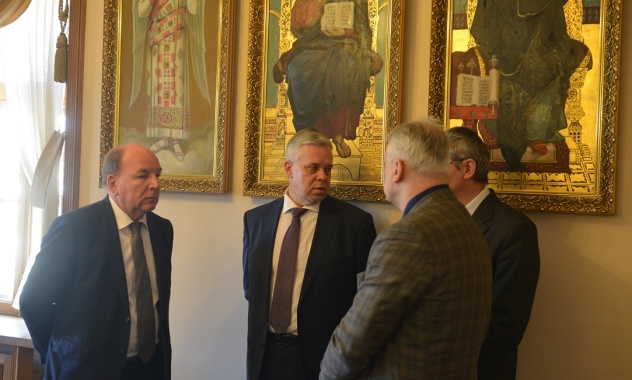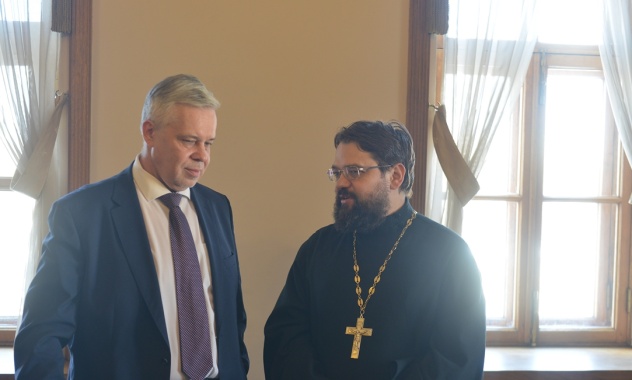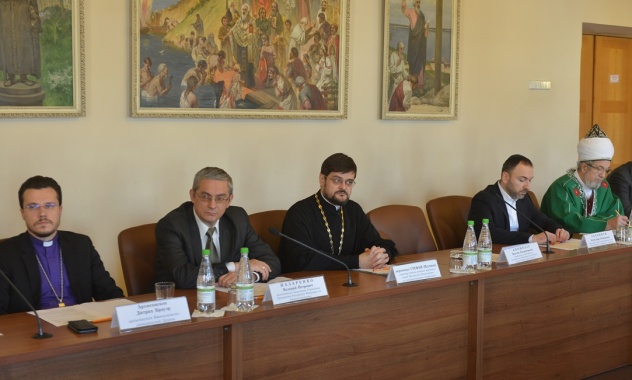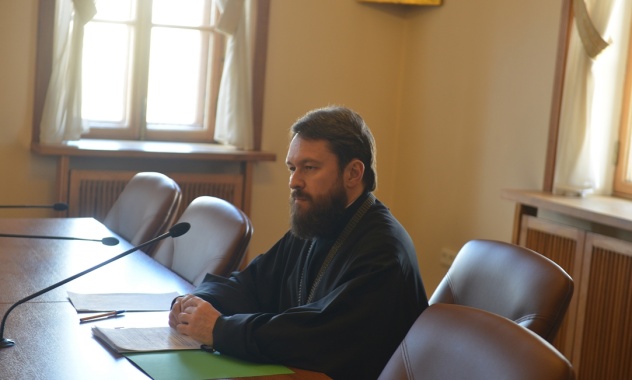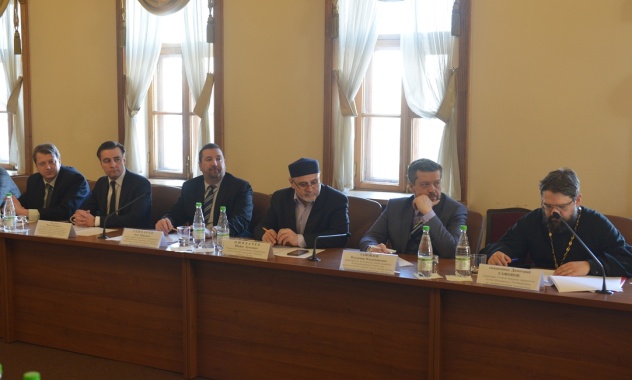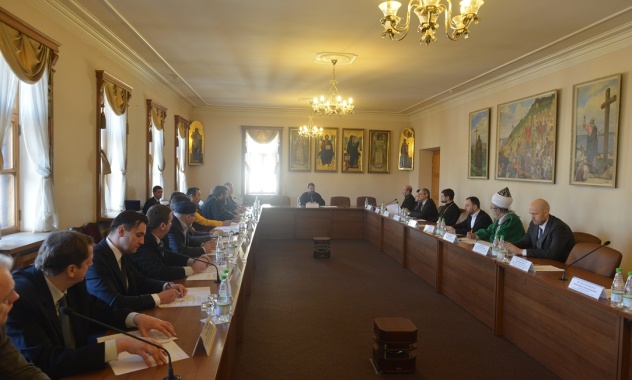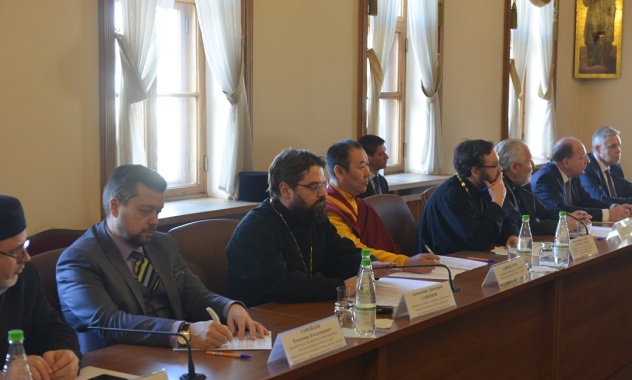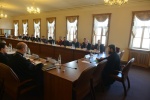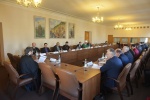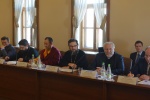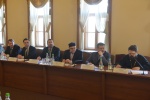Metropolitan Hilarion of Volokolamsk chairs session of Commission for International Cooperation of Presidential Council for Cooperation with Religious Organizations
On 21 February 2018, the Commission for International Cooperation of Russia’s Presidential Council for Cooperation with Religious Organizations held its fourth session. The meeting which took place at the Moscow Patriarchate’s Department for External Church Relations was chaired by Metropolitan Hilarion of Volokolamsk, head of the DECR.
Among the issued discussed was the promotion of cooperation between the Russian traditional religious communities and communities of the Syrian Arab Republic. Taking part in the session were the Commission members – statesmen, public figures and representatives of Russia’s traditional religious communities.
In his opening address, Metropolitan Hilarion of Volokolamsk reminded those present that the Working Group for Aid to the Population of Syria was established in April 2017. “Our communities actively responded to this project, and already in May necessary funds were raised to carry out the first humanitarian action,” the DECR chairman said, “A considerable part of the funds raised to purchase the aid was contributed by His Holiness Patriarch Kirill who personally supervises the Working group’s activities.”
Last June and August, two consignments of aid of some 40 tonnes were sent to the most devastated areas in the north of Syria, the archpastor noted in his address. And quite recently, on 3-9 February 2018, a humanitarian action, unprecedented in its scale, was carried out: a delegation of the Working group visited Damascus and the Beqaa Valley in Lebanon, delivering there over 70 tonnes of humanitarian cargo consisting of three thousand foodstuff packages.
Metropolitan Hilarion thanked the members of the Working group who had gone to Syria and Lebanon to deliver and distribute the aid and emphasized that “more than once they were under shelling, risking their lives.”
“The action drew wide response both in the Middle East and in Russia,” Metropolitan Hilarion continued, “It was a unique action, for the aid was distributed together with the Christian and Muslim leaders of Syria and Lebanon. Thus we help achieve yet another important goal – to consolidate local religious communities. I believe that we should advance, basing ourselves on the success we achieved.”
According to the DECR chairman, this project is unparalleled, showing a high level of interconfessional and interreligious cooperation reached in Russia in recent years.
“As the Working group’s experience in distributing the humanitarian aid in Syria showed, the interreligious dialogue will be of utmost importance in restoring normal life in the country after the war,” the hierarch said.
This year marks the 20th anniversary of establishment of the Interreligious Council of Russia, within the framework of which religious leaders of the country exchange opinions and settle existing issues, the archpastor noted. The Council’s chairman emeritus is His Holiness Patriarch Kirill of Moscow and All Russia. “Representatives of the Interreligious Council of Russia took part in the OSCE sessions on repeated occasions, sharing the Russian experience of peaceful interfaith coexistence, so much needed today in many countries,” Metropolitan Hilarion said, expressing his opinion that the Interreligious Council of Russia has a good potential for developing cooperation between Russia’s religious communities in the international sphere.
Among those who spoke at the meeting were representatives of the Christian confessions and traditional religions of Russia, as well as of state authorities and non-governmental organizations.
All participants in the meeting concurred that the Working Group for Aid to the Population of Syria of the Presidential Council for Cooperation with Religious Organizations was efficient in its work, and emphasized the necessity for its activities to be continued.
DECR Communication Service







